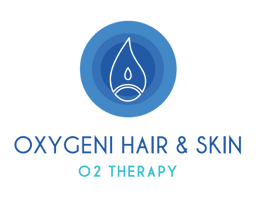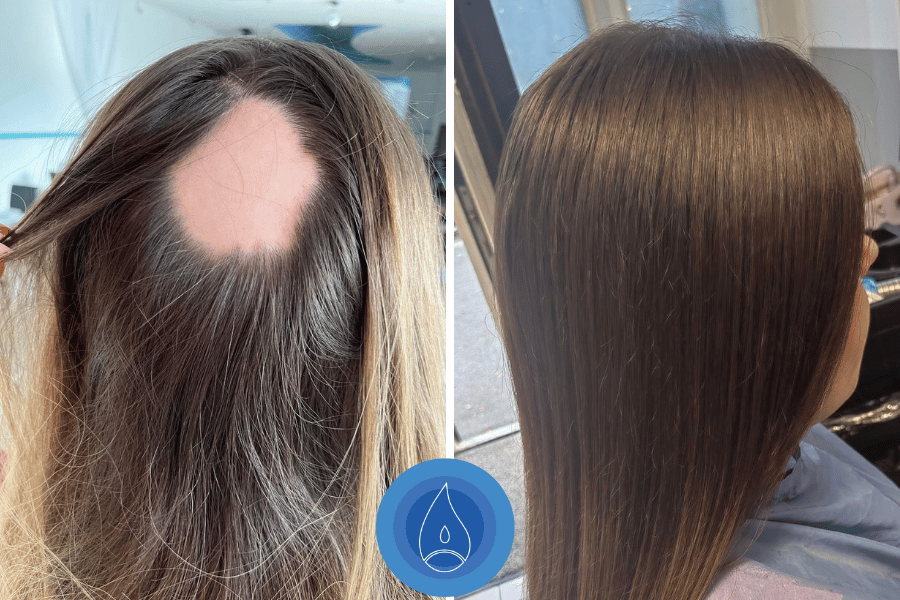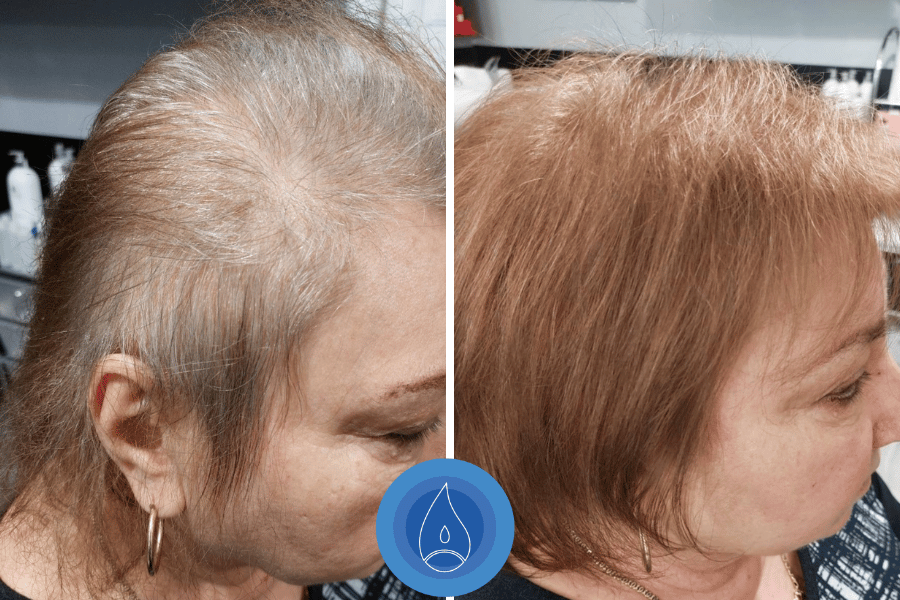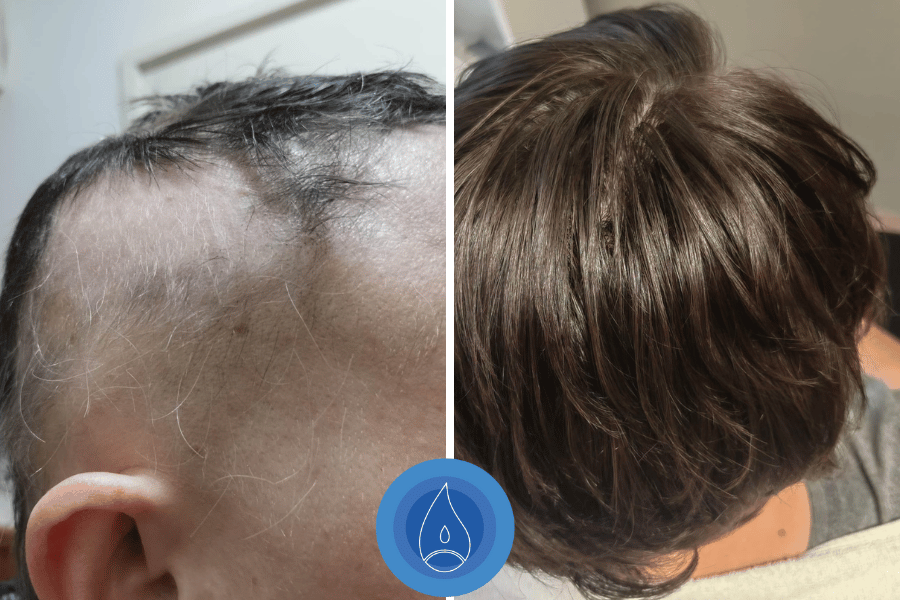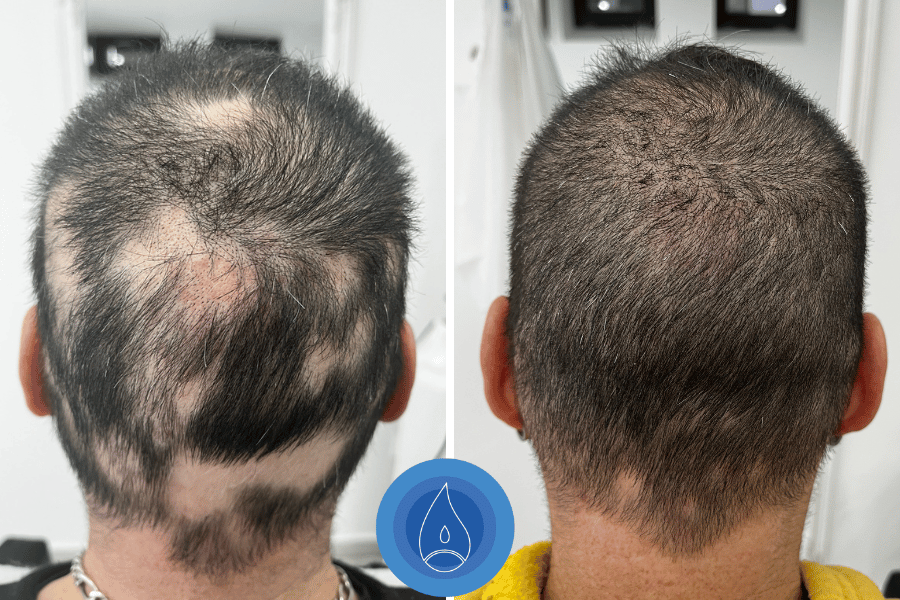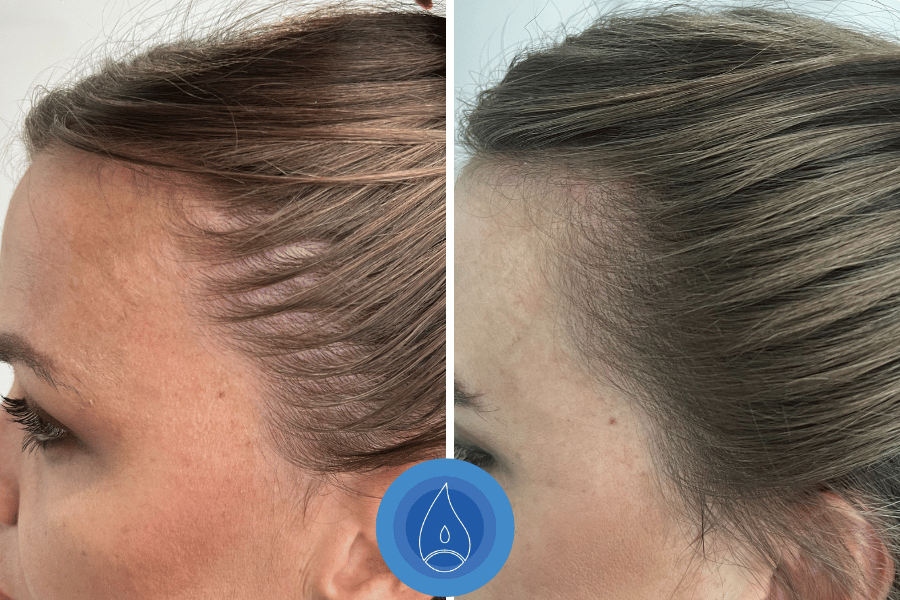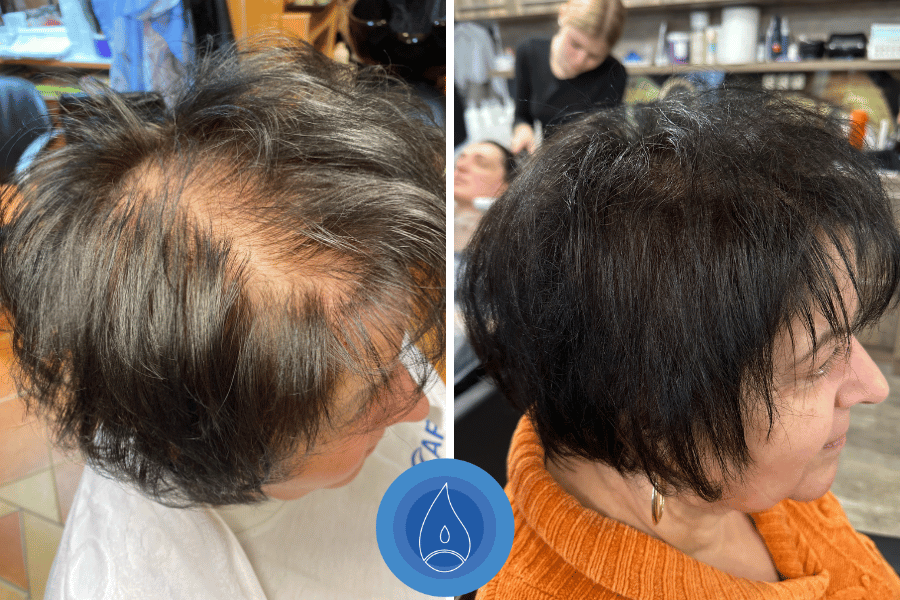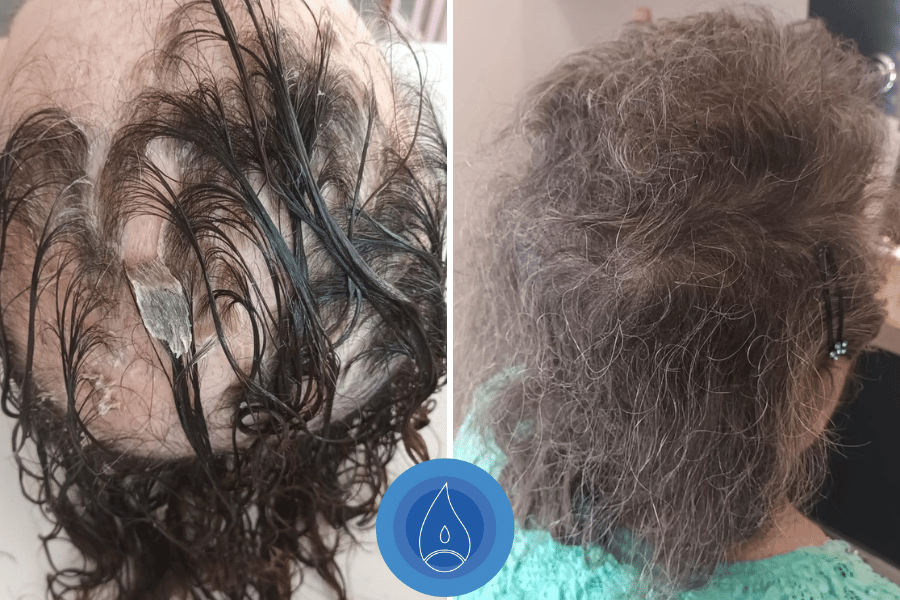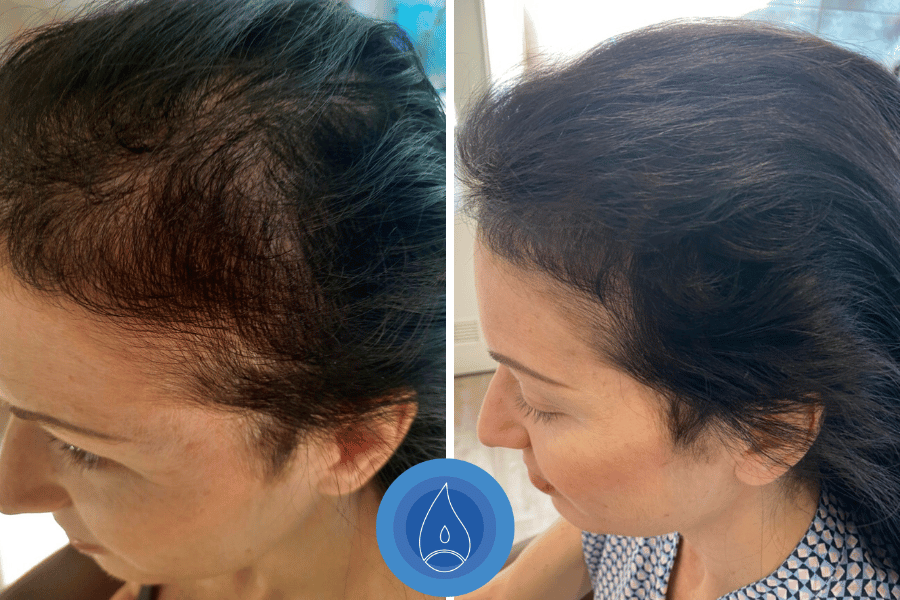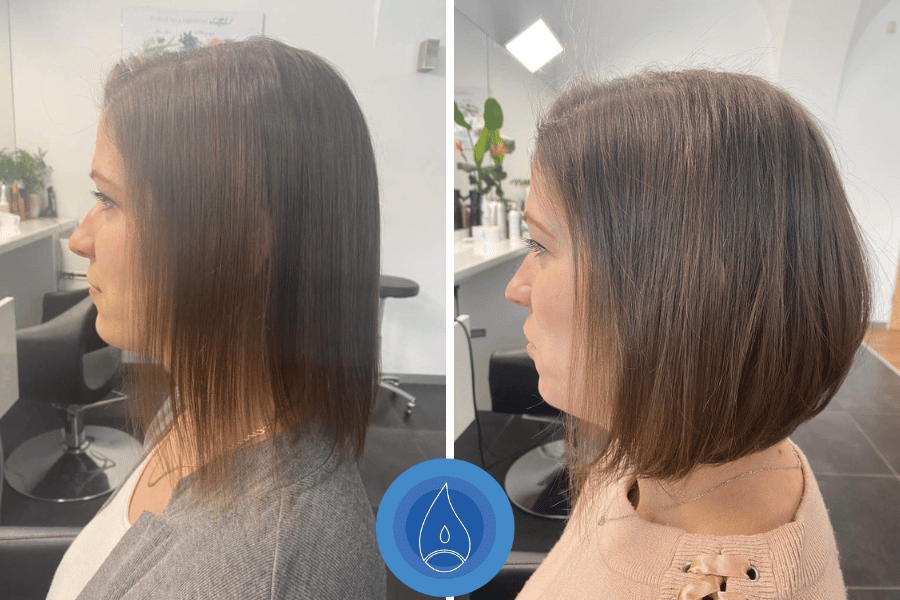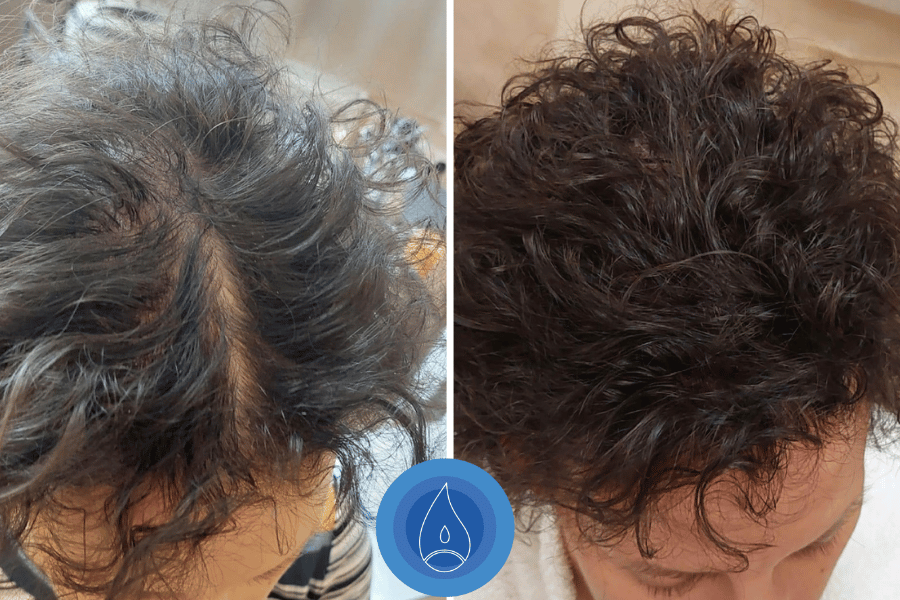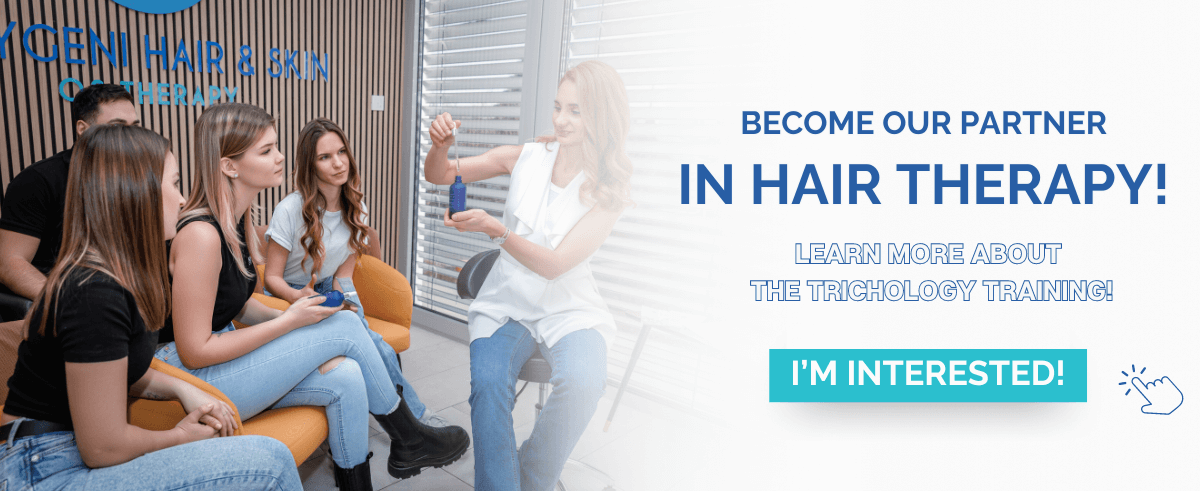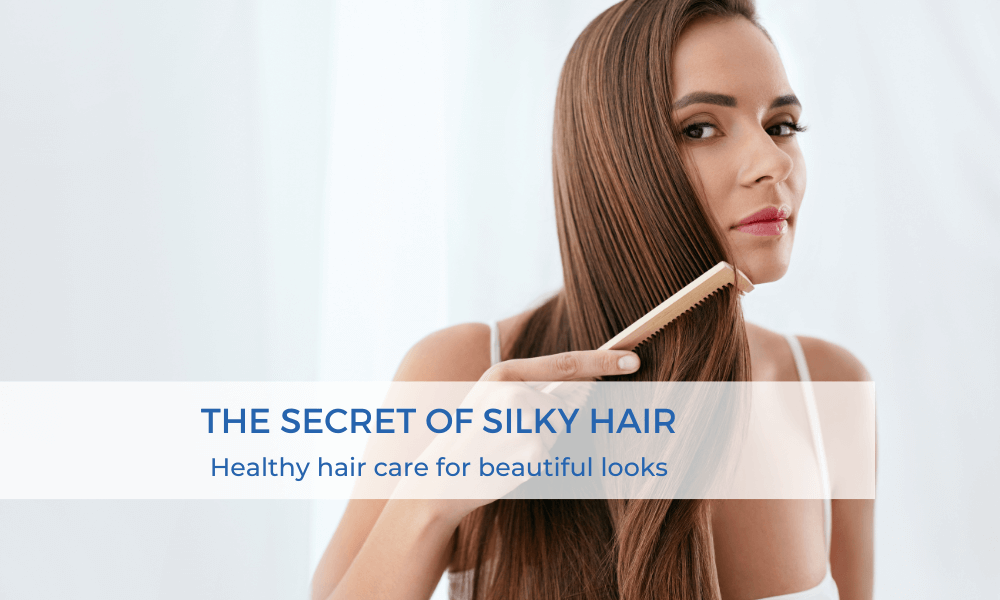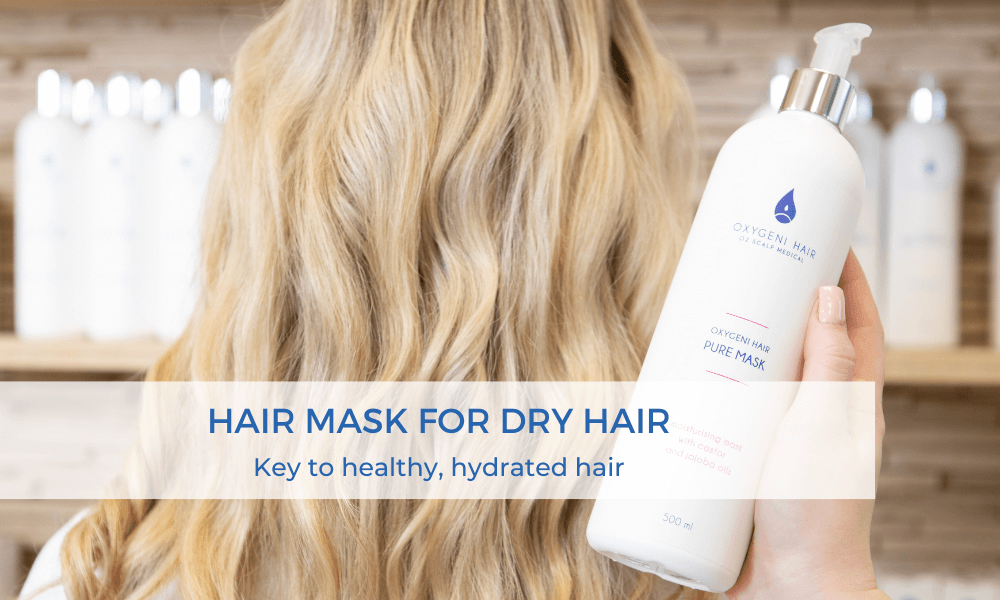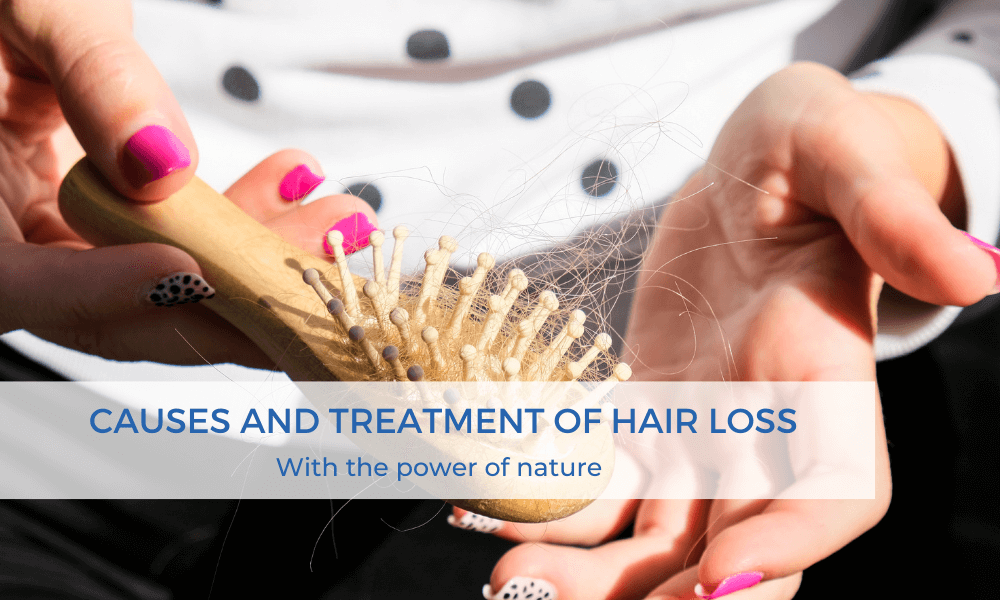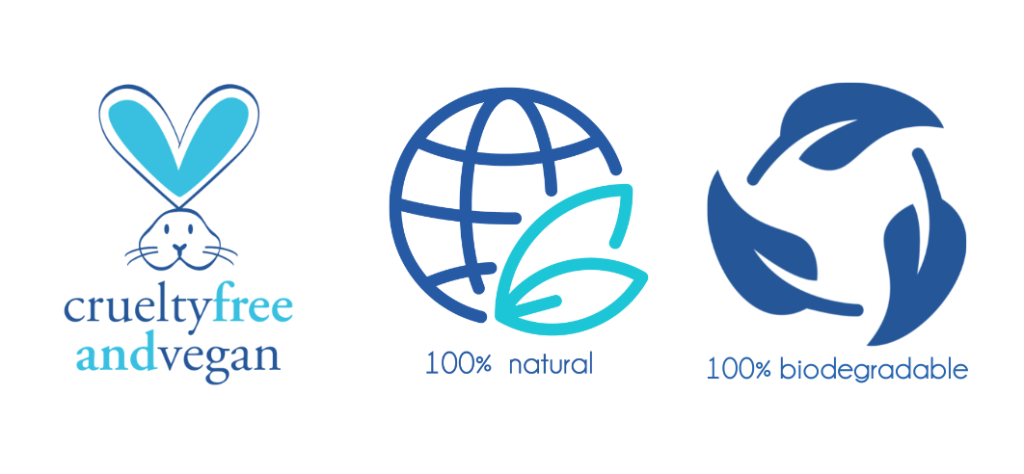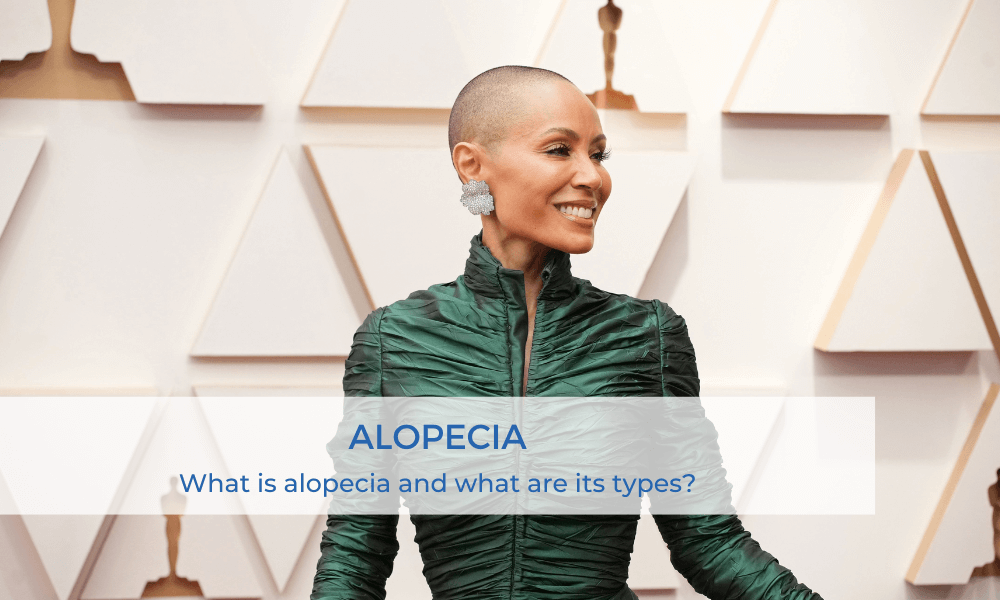
Alopecia - What is alopecia and what are its types?
Alopecia generally refers to hair loss, and there are several types of it. It can occur in men, women, and children!
The most characteristic symptom of alopecia areata is patchy hair loss.
In the case of alopecia diffusa, the hair follicle’s three life cycle stages are shortened, transitioning too quickly from the growth phase to the resting phase, followed shortly by the shedding phase. This type of hair loss can result from stress, illness, or even develop after a Covid infection.
Scarring alopecia (also known as cicatricial alopecia) occurs when hair follicles and follicles are damaged and destroyed due to some form of organ inflammation or tumor.
Monilethrix alopecia specifically affects children and usually occurs after some serious trauma. The cause of hair loss is a dry scalp. Another type of hair loss affecting children is alopecia ophiasis, which refers to hair loss around the crown.
Androgenic alopecia typically occurs in men’s scalps, starting at the temples.
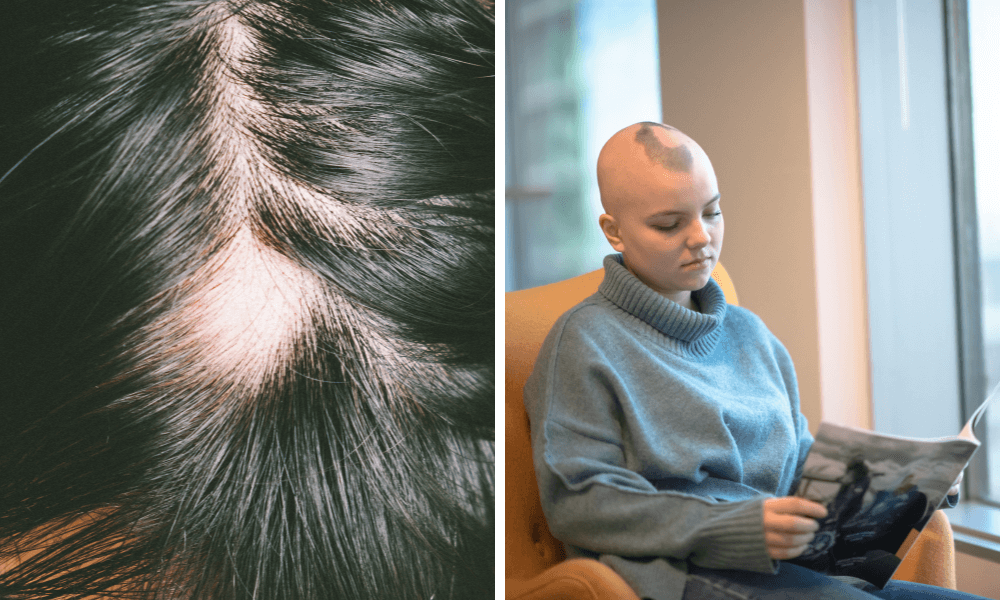
ALOPECIA AREATA AND ITS CHARACTERISTICS
The condition typically affects the scalp, but it can also result in patchy hair loss on other parts of the body. The size of the patches varies from person to person, ranging from small, 1-2 cm patches to larger areas or even involving the entire scalp. When a patient loses all the hair on the scalp, it is referred to as total alopecia. Hair loss can occur gradually, but in some cases, it can spread rapidly and persist for months to years.
Alopecia primarily burdens the individual emotionally, with stress and psychological symptoms exacerbating the condition. Depression and significant loss of self-confidence can develop in patients.
Alopecia areata is an autoimmune disease, wherein the immune system attacks the body’s own cells, specifically the matrix cells in the hair follicles. The danger of autoimmune diseases lies in the fact that multiple autoimmune processes can be triggered in the body after their onset.
The development of these conditions can be attributed to factors such as stress, weakened immune system, genetic predisposition, hormones, allergies, inflammatory processes, various viruses, and toxins.
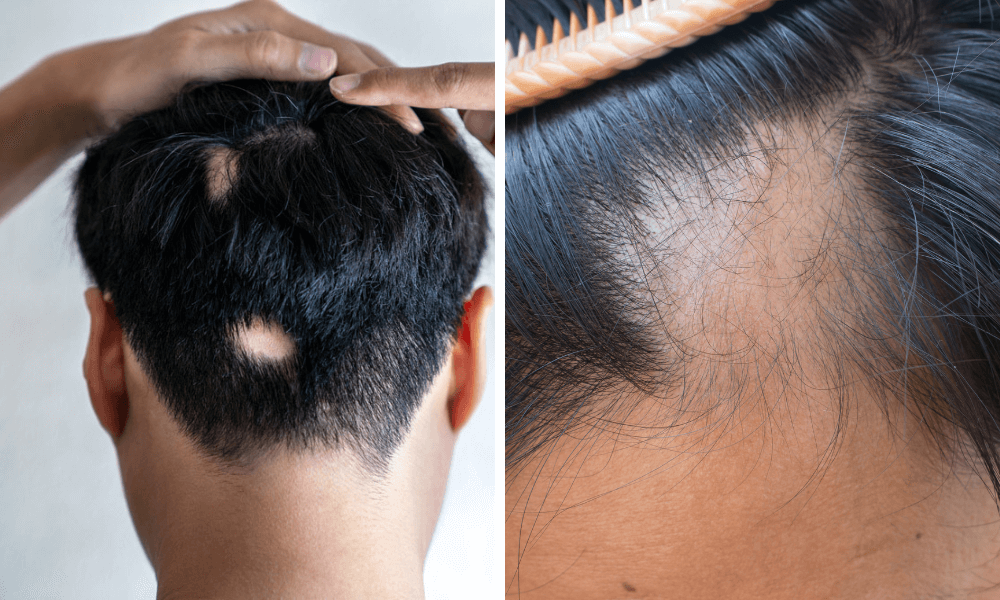
CAN LOST HAIR REGROW?
In cases of alopecia areata, patients often fully recover, but there are instances where hair loss recurs continuously. In his case, the hair follicles are not permanently damaged, allowing for the possibility of regrowth. However, initiating treatment for hair loss early on is advisable to ensure full regrowth of hair.
VITAMIN DEFICIENCY
Vitamin deficiency can also be a triggering factor for baldness. Consuming natural dietary supplements greatly aids in scalp and hair health. Additionally, it is essential to consume foods rich in vitamin sources. Try incorporating foods or supplements into your diet that contain the following vitamins and minerals: Vitamin A, B6 and B12 vitamins, Vitamin C, Folic acid, Zinc, Iron, Copper.
CELEBRITIES WHO EXPERIENCED ALOPECIA
More and more celebrities openly admit to struggling with alopecia, which can help boost the confidence of other patients. It has become increasingly common among Hollywood stars to openly acknowledge their plastic surgeries and other cosmetic procedures, thereby lessening the distortion of people’s self-image.
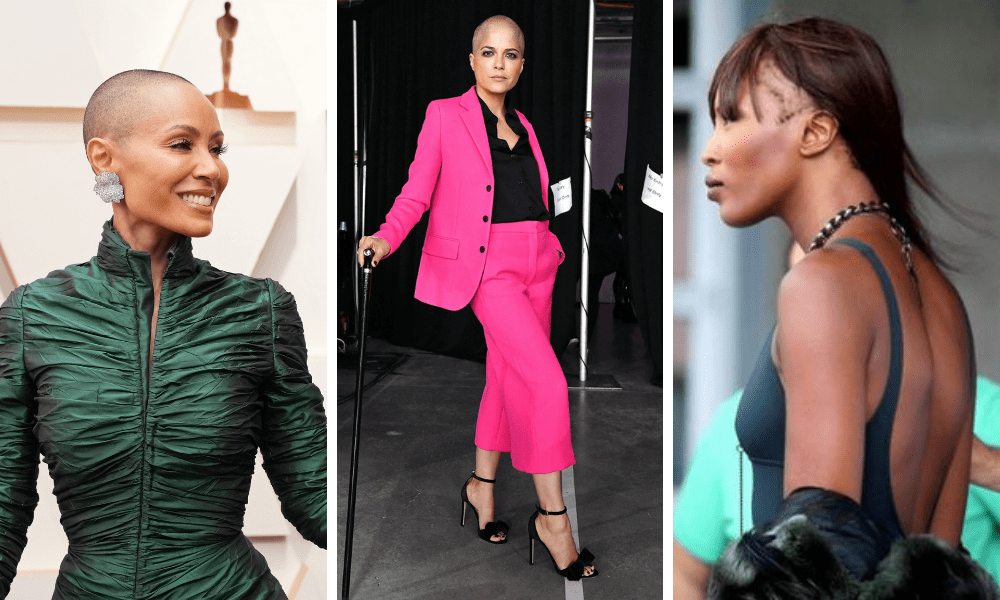
Tyra Banks has spoken multiple times about suffering from alopecia during periods of high stress due to her professional commitments. Fortunately, she did not lose all of her hair, but she often had to wear wigs.
Jada Pinkett Smith, wife of Will Smith, lost her entire hairline due to alopecia areata. The actress experienced sudden hair loss overnight, with clumps of hair falling out, eventually leading her to shave her head herself. Initially, she attributed it to stress, but expert doctors later diagnosed her with alopecia areata.
Actress Selma Blair experienced significant hair loss after giving birth, which started due to her multiple sclerosis. The disease was treated with chemotherapy, which further accelerated the hair loss process. In her statement, she also mentioned that since her hair loss, she spends longer periods in the shower to gather the fallen hair, which is so extensive that it would clog the drain. She also shaved her head during chemotherapy.
Naomi Campbell suffered from traction alopecia due to years of wearing hair extensions and tight hairstyles. Doctors diagnosed her with traction alopecia, a pathological hair loss condition caused by prolonged tension on the hair follicles (caused by hair extensions). After severe hair loss, she required significant attention to her hair care.
OTHER CELEBRITIES BATTLING ALOPECIA
Actor Matt Lucas has been battling alopecia since childhood. He experienced very difficult times due to complete hair loss and baldness during his childhood. His classmates often bullied him because of his complete baldness. However, in February 2021, he posted that he grew his first mustache in his life, but his eyebrows and hair have not grown back since then.
Viola Davis struggled with alopecia at the age of 28. Her hair fell out in patches, which she tried to cover with a wig. According to her, she wore a wig even at home and during workouts because she was so afraid to show her natural hair. She primarily attributed her hair loss to extreme stress.
Kristin Davis, star of “Sex and the City,” noticed her hair loss at the end of the series’ filming in 2004. Her hairline became significantly sparse, and she experienced intense hair loss overnight, eventually seeking help from professional hairstylists.
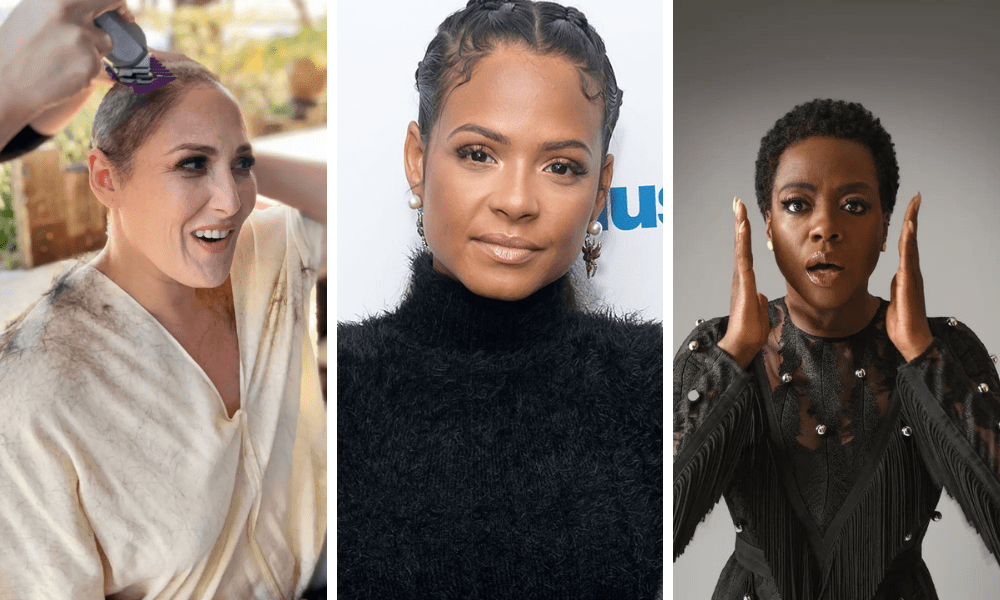
Marcia Cross, known for her role as Bree in “Desperate Housewives,” experienced hair loss due to chemotherapy treatments. Her hair was approximately 3 cm long when she posted about her hair loss on social media in 2018.
Christina Millian suffered postpartum hair loss in 2020. The actress was deeply affected by this period, impacting her confidence and even her relationship.
Ricki Lake spoke publicly about her hair loss for the first time in 2020. She had been battling hair loss throughout most of her adult life, which caused depression. She even contemplated suicide several times due to the distress of losing her hair. Doctors treated her with steroid injections, but this only provided a temporary solution. She openly acknowledged her hair loss in an Instagram post.
HOW IS ALOPECIA TREATED?
Treatment for alopecia varies for each patient, and unfortunately, there are cases where no treatment works. One of the most common methods is steroid injections and medication, but these can come with side effects. The skin can become thinner, and even bones can be affected, so these treatments can only be used for a short period. The downside is that often, after treatment stops, the previously strengthened hair follicles start to fall out again.
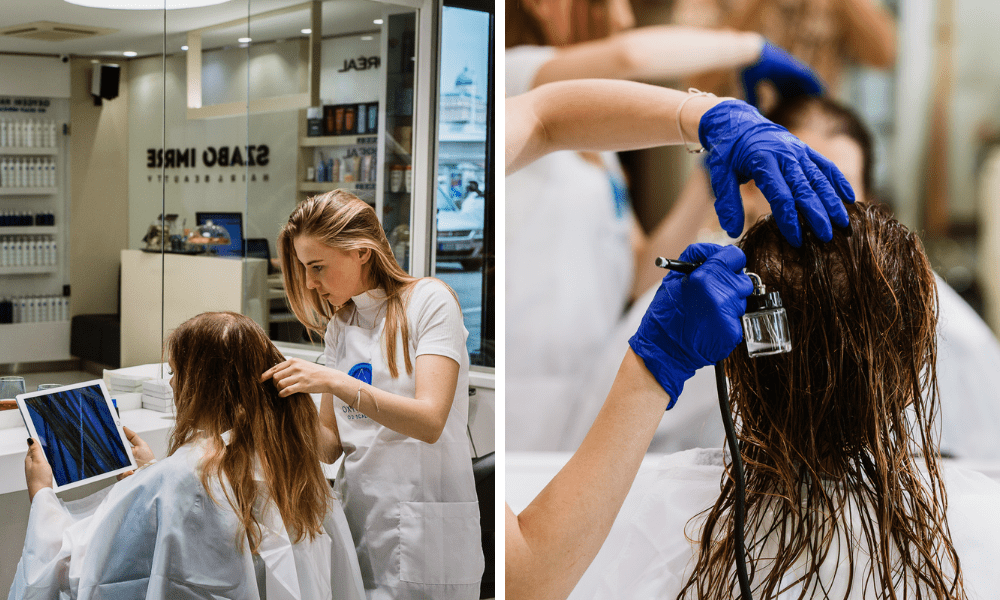
Oxygen therapy can help strengthen hair follicles and stimulate hair growth without any side effects. Without the use of needles, we infuse 100% pure oxygen, vitamins, minerals, and natural active ingredients at high pressure into both the cellular and intercellular spaces of the skin’s upper layer. Oxygen enhances cell metabolism, improves blood circulation, promotes regeneration, facilitates collagen formation, and enhances self-healing processes. The procedure is gentle, causing no irritation or allergic reactions. Oxygen therapy is based on strengthening the immune system, making it suitable for autoimmune diseases as well, as it reduces regeneration and healing time. During the treatment, only 100% natural ingredients are introduced into the body.
The results achieved during oxygen therapy are remarkable, with the effectiveness of the treatment experienced on over 500,000 treated scalps.
OXYGEN THERAPY RESULTS
HAIR CARE
Your at-home hair and skincare routine matters. For lasting healing, using chemical-free and 100% natural products provides a long-term solution.
Hair loss can be caused by hair care products containing strong chemicals. It’s important to focus on prevention by practicing proper hygiene. Nourish your scalp with appropriate, natural ingredients. Check out Oxygeni Hair products by clicking here, which contain carefully selected ingredients to protect the scalp and hair from artificial, harmful substances.
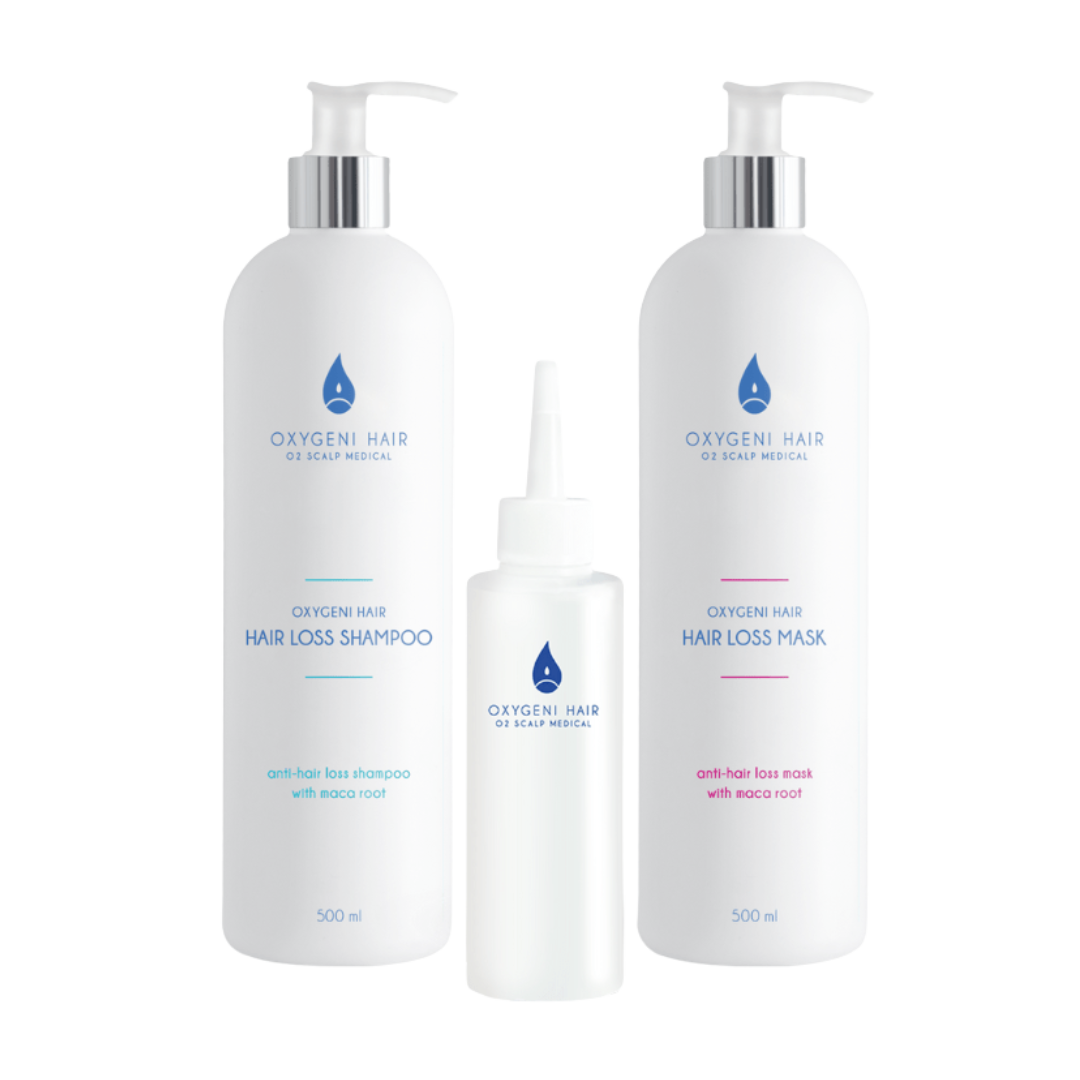
Anti-Hair Loss Product Bundle
The Hair Loss Shampoo is recommended for weak, thinning hair. Trace elements containing vitamin B5 penetrate the scalp layer, strengthening the hair follicles. Maca root extract stimulates hair growth, prevents and reduces hair loss, and improves scalp condition.
The Hair Loss Mask containing baicapil, maca root extract, and vitamin B5 helps stop hair loss and strengthen weak hair strands. The ingredients contribute to hair growth, reduce tissue inflammation, accelerate fat metabolism, and strengthen collagen fibers. It improves the resistance of hair roots to external factors and helps prevent hair loss.
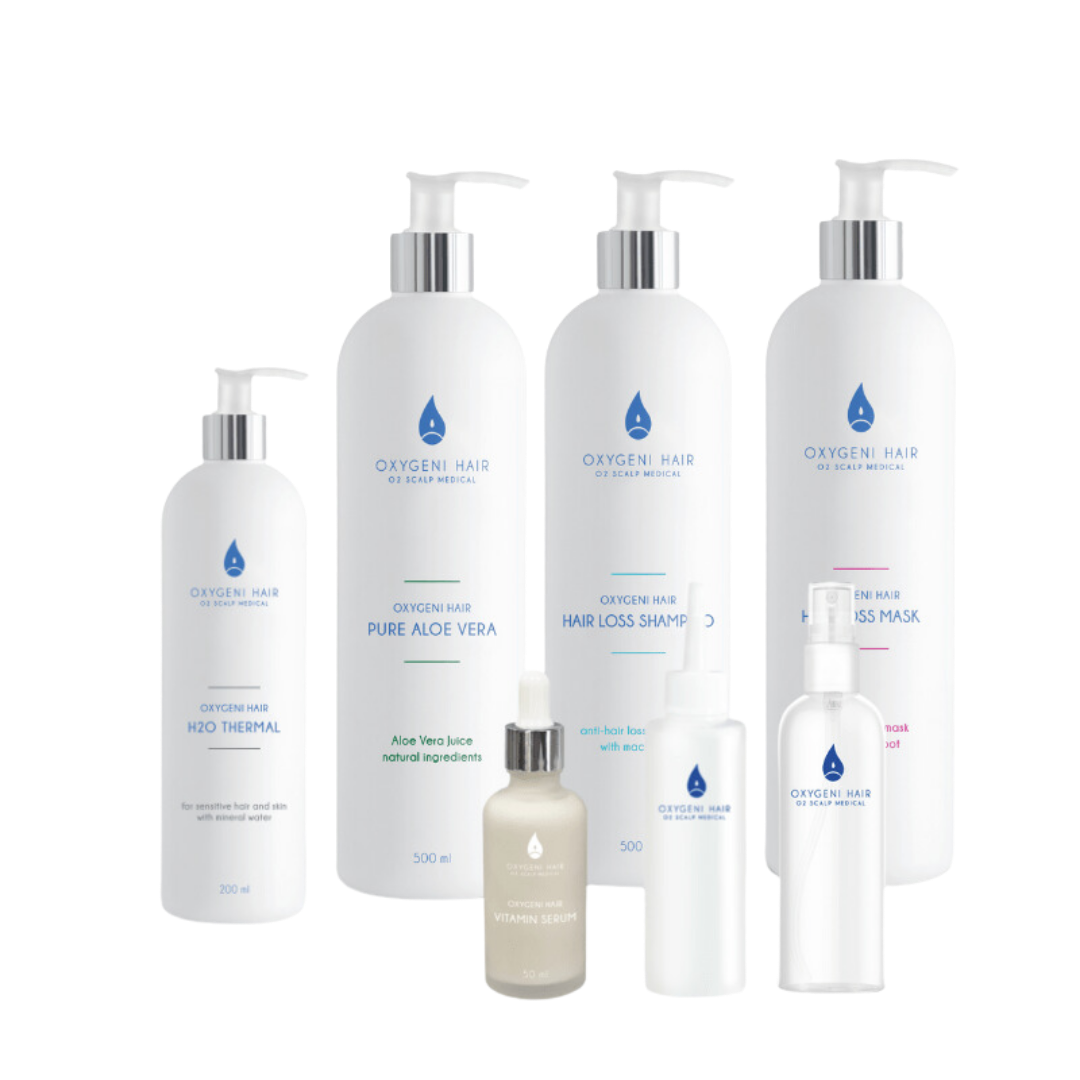
Complex Anti-Hair Loss Product Bundle
If you're looking for a more comprehensive solution and want to effectively treat your hair loss, then this package provides 100% natural and long-lasting care for your scalp. We recommend using Hair Loss Shampoo, Hair Loss Mask, Pure Aloe Vera, H2O Thermal, and Vitamin Serum products together for hair loss prevention, strengthening, and growth. Thanks to the 100% natural formulas of the products, they offer a long-term solution for scalp problems.
OXYGEN THERAPY AND OXYGENI HAIR PRODUCT REVIEWS








Follow us on our social media platforms!
